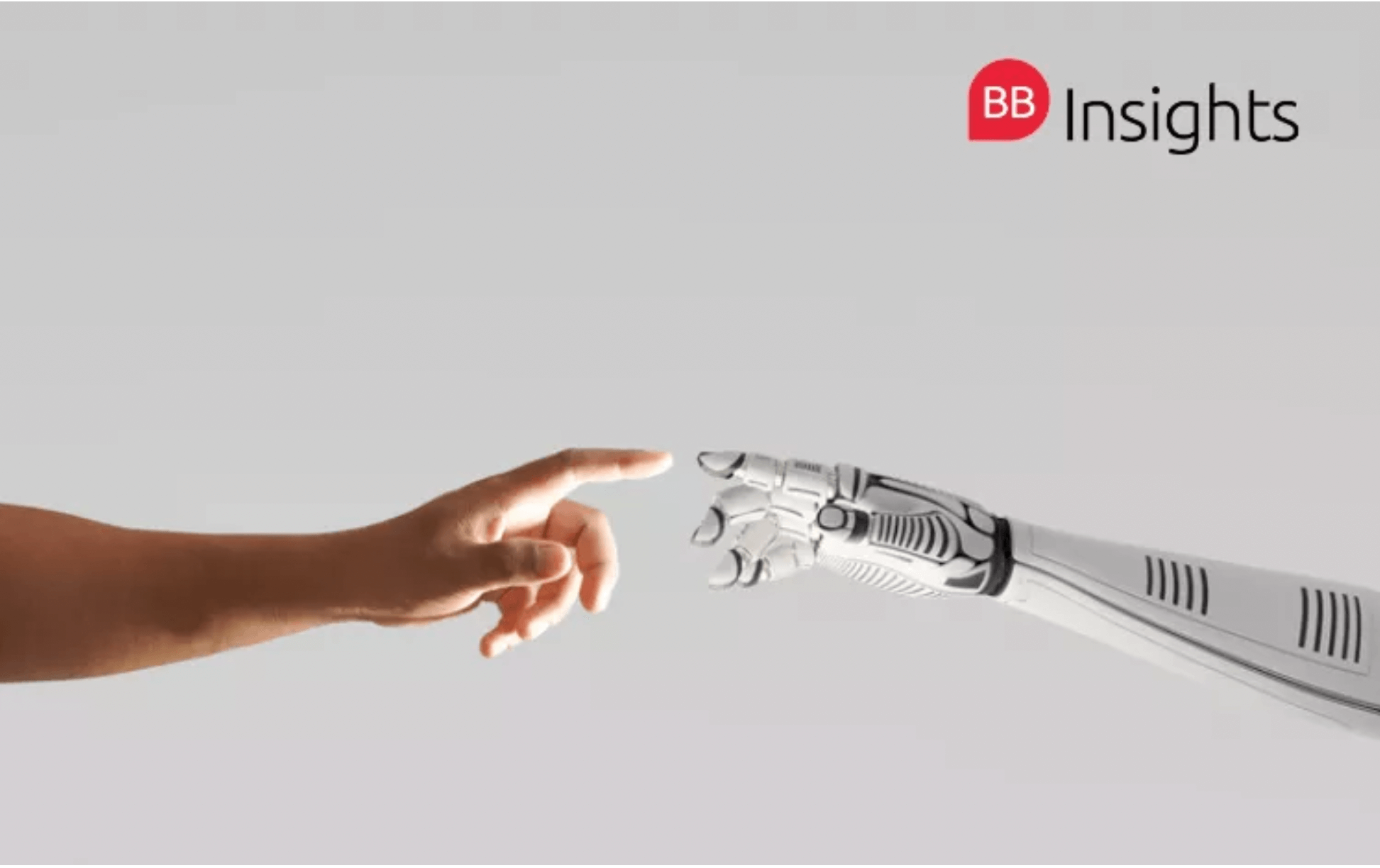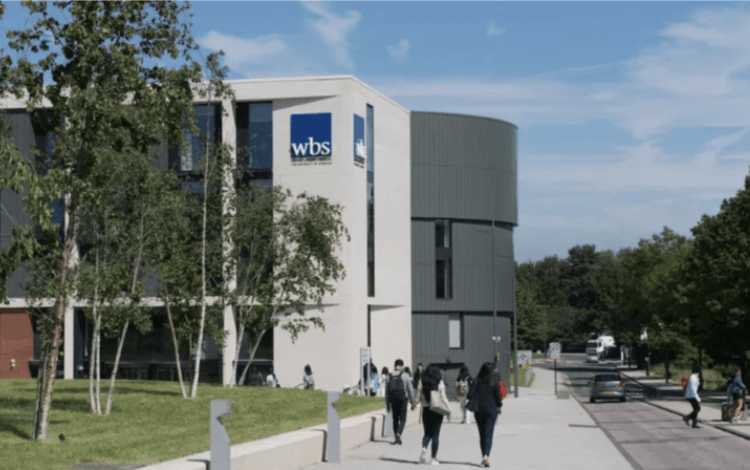In the first few years of this decade, companies have faced enormous challenges and had to adapt to events that have rocked the nature of our working lives. Businesses are facing the aftereffects of the COVID-19 pandemic, which drove us into our homes and behind our computer screens at work, Russia's invasion of Ukraine, and immense economic challenges.
This decade is also seeing disruptive advancements in technology and innovation, and the ever-present threat of climate change which will impact the running of businesses.
Innovation is at the heart of successful businesses, particularly in times of uncertainty and rapid advancements. Understanding what trends will most significantly impact the decade will aid innovation and prepare companies for the changing years ahead.
BusinessBecause sat down with Jacky Swan and James Hayton, two professors from the Warwick Business School MBA, a leading business school in innovation, to learn about the future work trends of the decade. Jacky is a professor of organizational behavior and specializes in remote work, inclusivity, and connectivity, and James specializes in corporate entrepreneurship and innovation.
1. A greater onus on employees to be strategic
Since the COVID-19 pandemic hit, workers across the globe have embraced virtual work, and despite most countries lifting restrictions, working from home either part- or full-time has continued in most companies.
While there are many advantages to this, such as better work-life balance and money saved on commuting, there are some pitfalls that businesses need to consider. Remote working can lead to issues of communication and trust, and companies need to find a way to create a psychologically safe environment for their employees.
"The idea of psychological safety is the feeling of being free to speak up within a team, which is very important for learning. If people don't feel free to speak up, if they don't feel that their opinions will be heard and respected, they will keep quiet," Jacky says.
Psychological safety is much more complex when working virtually, as employees don't interact naturally within a shared space: each interaction is structured rather than spontaneous. There are no coffee chats or spontaneous conversations, which makes learning a lot harder.
"When you're working in a virtual team, you've got different touch points with your colleagues," Jacky says. "You don't have those same opportunities for casual conversation that you would have in the workplace, so establishing that level of trust and psychological safety is more problematic."
To counter these issues in the coming years, Jacky says that the onus is placed on the newcomer to see where opportunities lie and to strategically put themselves in the right place at the right time to use those opportunities.
"If you don't have those opportunities, you must craft them yourself. So it places a greater onus on the newcomer to ensure they are in the right conversations at the right time. Even if those conversations are online, ensure they are present and visible to get those opportunities to learn."
READ: What Is Responsible Artificial Intelligence?
2. The rapid adoption of AI and Robotics
In this decade, we will see the continuation of innovations in transformative technologies such as artificial intelligence (AI) and robotics. AI and robotic technologies are likely to come in all shapes and sizes, working to improve productivity through automation and even self-driving cars.
James discusses how in the short-term AI and robotics might not impact as people expect; for example, we won't have autonomous, humanoid robots successfully replacing workers. However, in this decade, we will likely see a rapid improvement in AI (such as the integration of software such as ChatGPT) and the adoption of robotics in business.
"Artificial intelligence has exponentially improved, and it continues to improve exponentially," James says. "Our abilities to develop control and perception systems in robots are also accelerating rapidly. We may see quite an adoption of robotic technology over the next decade."
When embracing transformative technology and accelerating businesses, an innovative, adaptable workforce is critical.
"If we help employers adapt and redevelop their workforce, then we're likely to have much more positive outcomes from adopting new technology over the next ten years, and nothing enhances productivity better than new technology."
3. A drive to develop and use sustainable solutions
Sustainability in businesses is already high priority. Much of the world has awoken to the imminent threat of climate change, and companies are steadily moving environmental, social, and governance (ESG) processes to the center of their strategies
Alongside ESG, James discusses disruptive sustainable technologies that will change businesses. Firstly, clean energy will lead to a complete transformation in terms of energy distribution and energy availability in different geographic areas.
James also predicts a significant change in agriculture as we shift to alternative protein sources. Companies such as Beyond Meat are becoming more popular as they use less energy and less water and are produced more locally to avoid transportation impacts and costs. This is likely to lead to a decline in traditional agriculture over the decade.
“You'll see a decline in traditional agriculture and growth in localized agriculture and vertical farming, alternative sources of protein, and alternative dairy products,
"This will impact other industries, with changes in land use, changes in storage requirements and changes, logistical requirements, insurance and financing, all of those things cascade off of it,” James explains.
READ: What's It Like Studying At Warwick Business School
4. Ambidextrous leadership will be vital
In the years ahead, businesses will need to be innovative and adapt to the next wave of changes in the world, just as companies did with business shifts like the industrial revolution and the invention of the internet.
"Very often, companies miss the boat in terms of new opportunities. In the late 90s, we saw Microsoft scrambling to adapt to the internet, even though it was a technology leader," James says. "Even established, successful companies often don't see the potential or value or underestimate the potential of new technologies."
James says staying ahead of the technological advancements in this decade means being ambidextrous in your leadership. Being an ambidextrous leader means running your established business model successfully while always being aware of advancements and on the lookout for new opportunities.
"As an organization you must be excellent at executing your existing business model while spending resources on the lookout for new opportunities, whether small, incremental, or fundamental business model transformations."
Most importantly, a leader needs a positive culture with a skilled workforce who will be confident in embracing these revolutionary technologies and future trends.
"Underlying all that, you must have a culture and a workforce that feels comfortable taking risks, learning, and trying new things while running the business. So organizational cultures that help people think in different ways and take risks, and simultaneously encourage people to work together towards greater collective goals,” says James.




